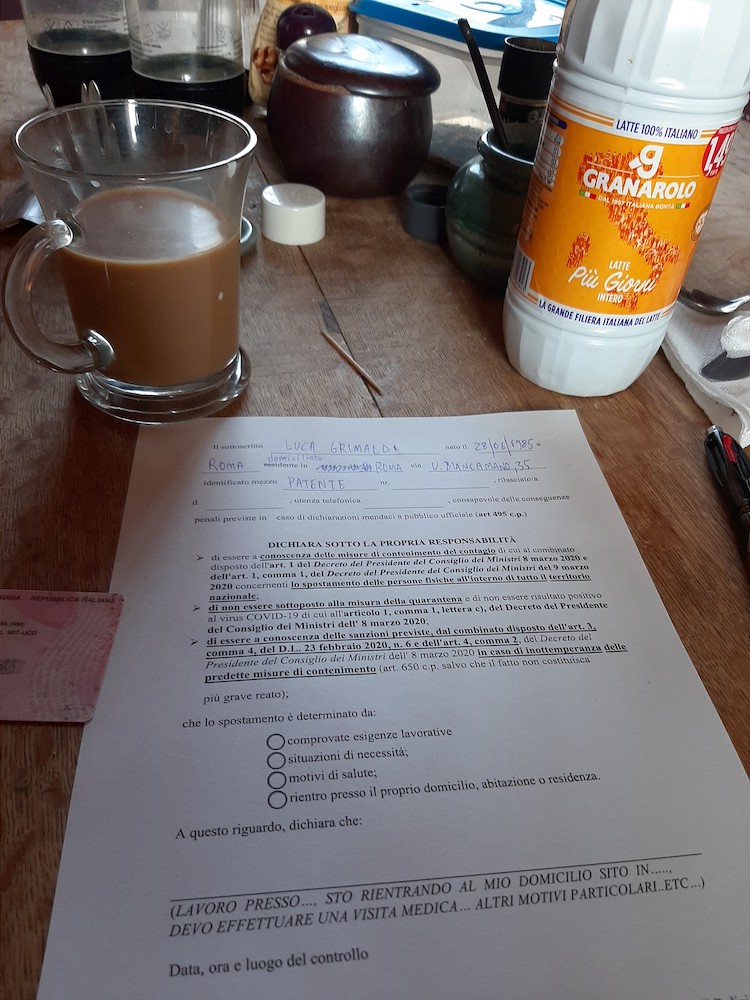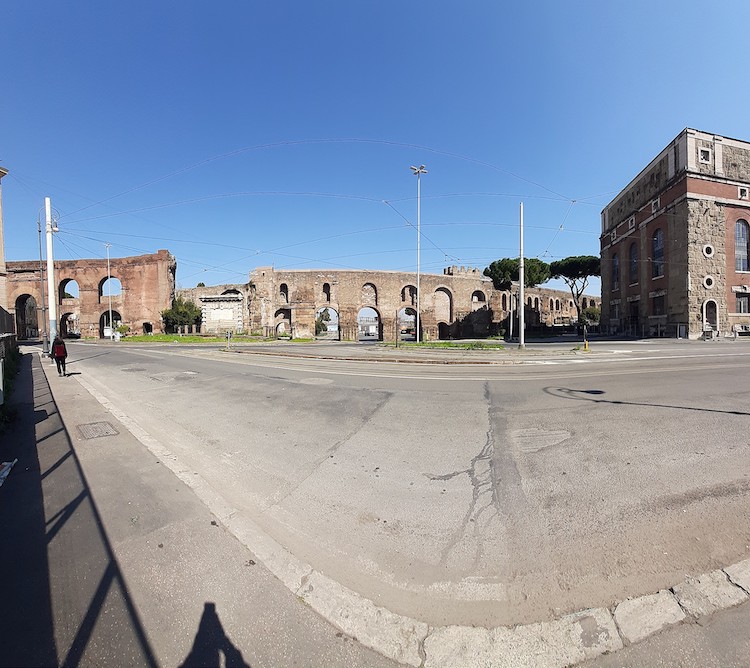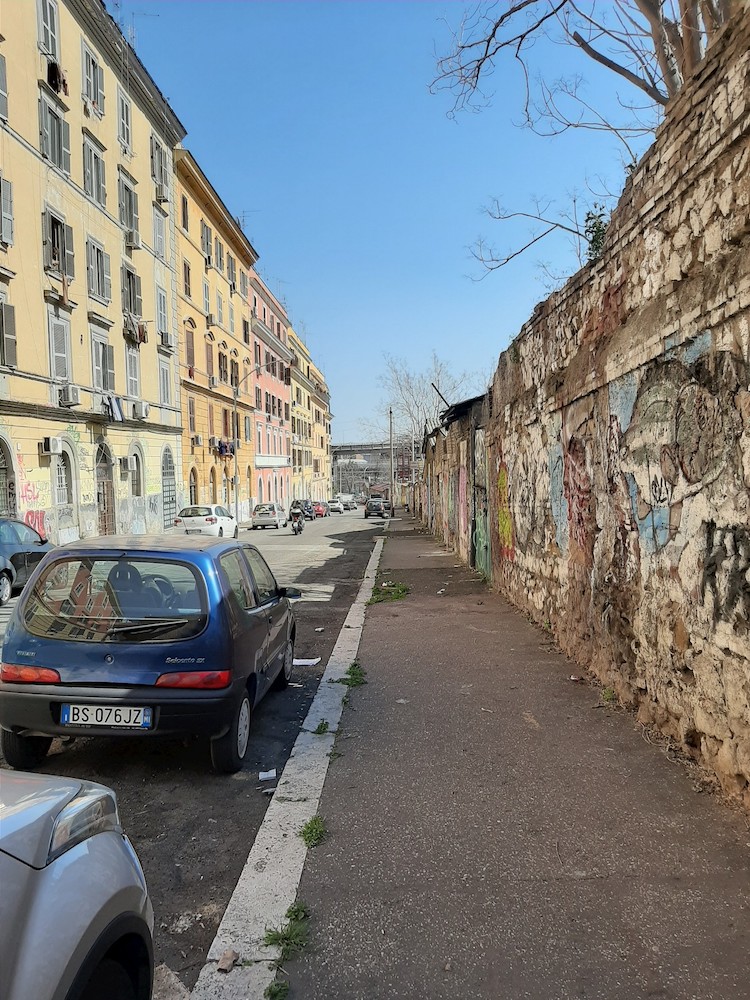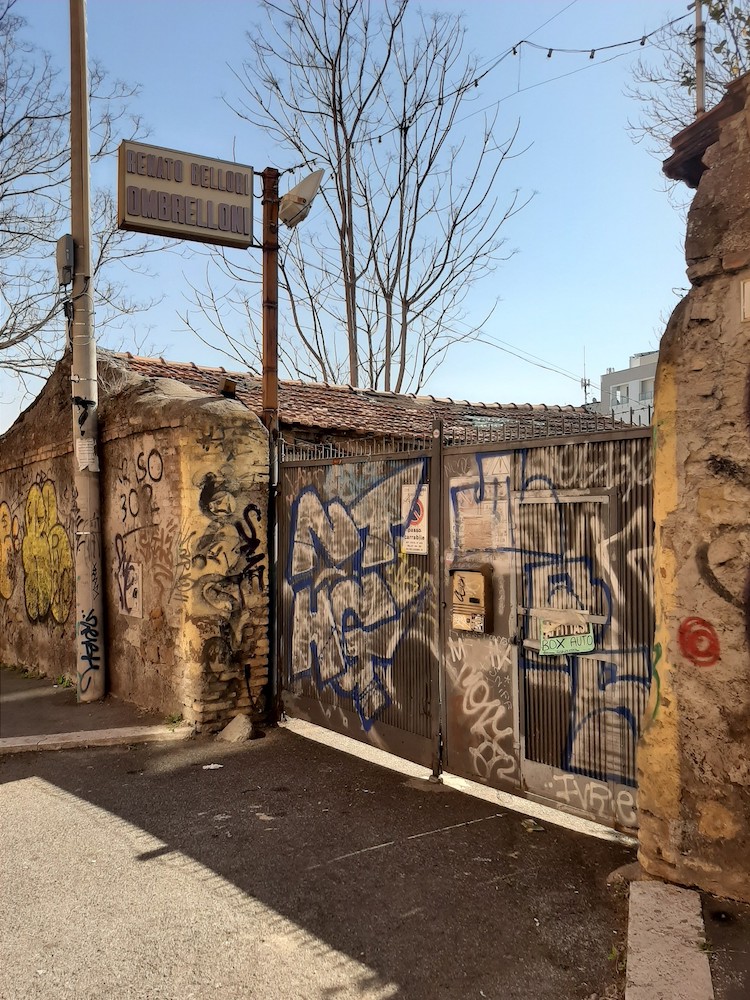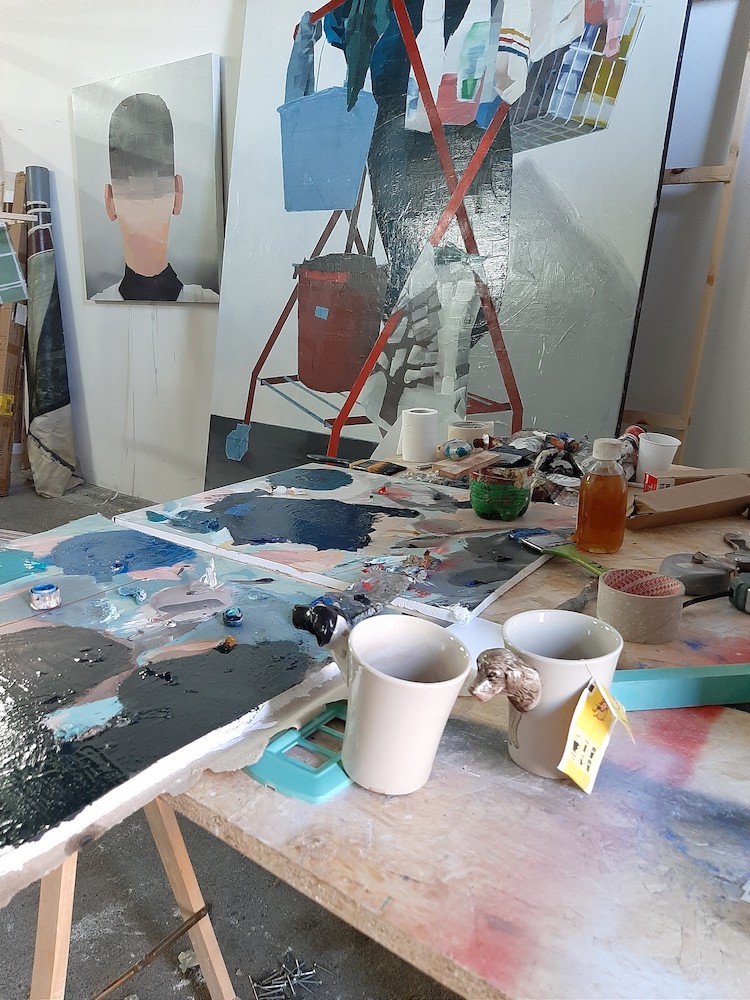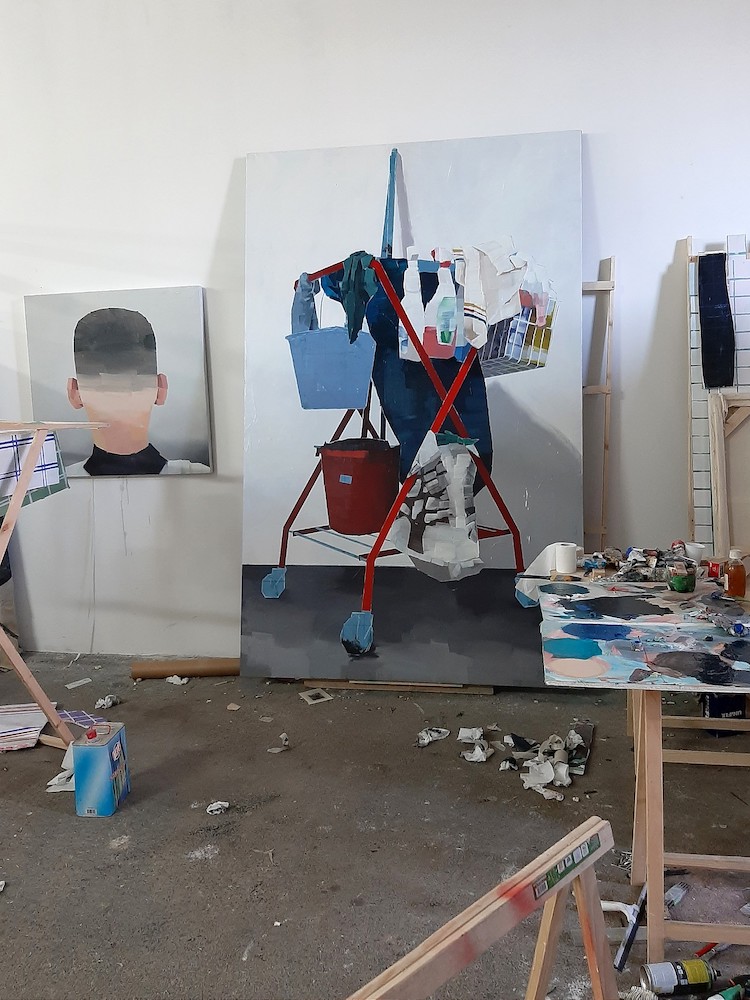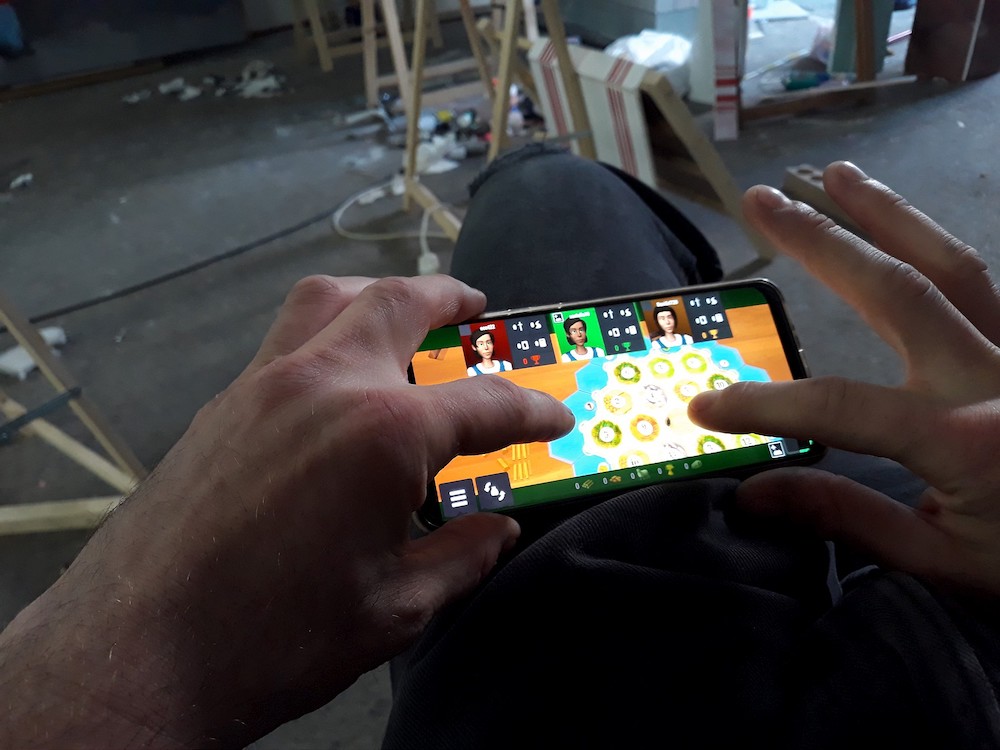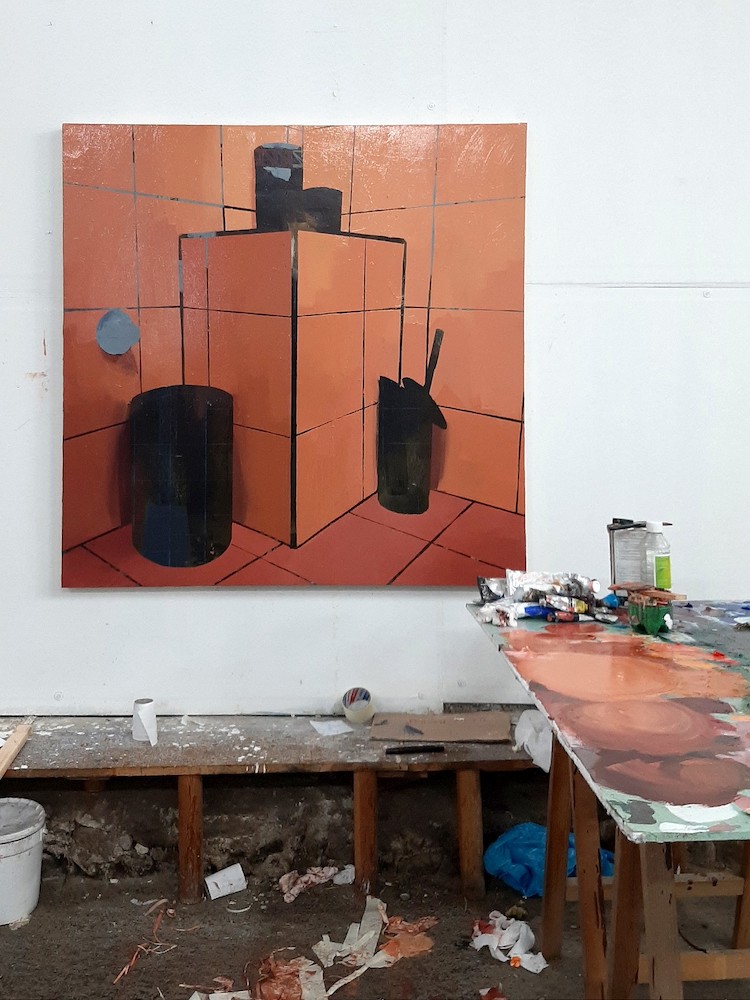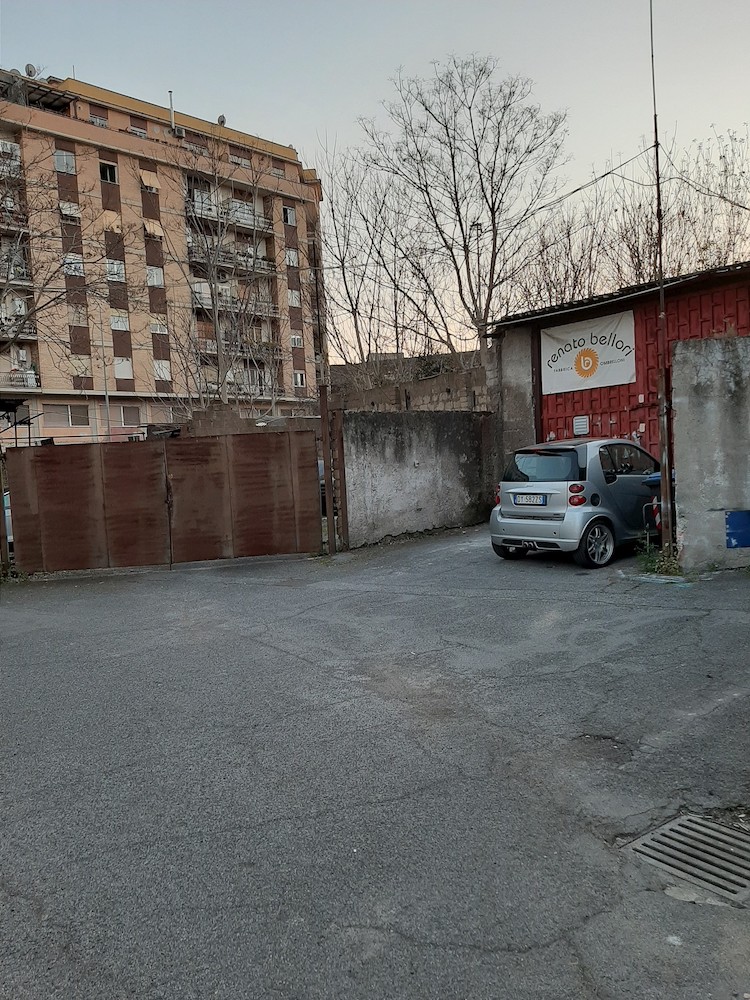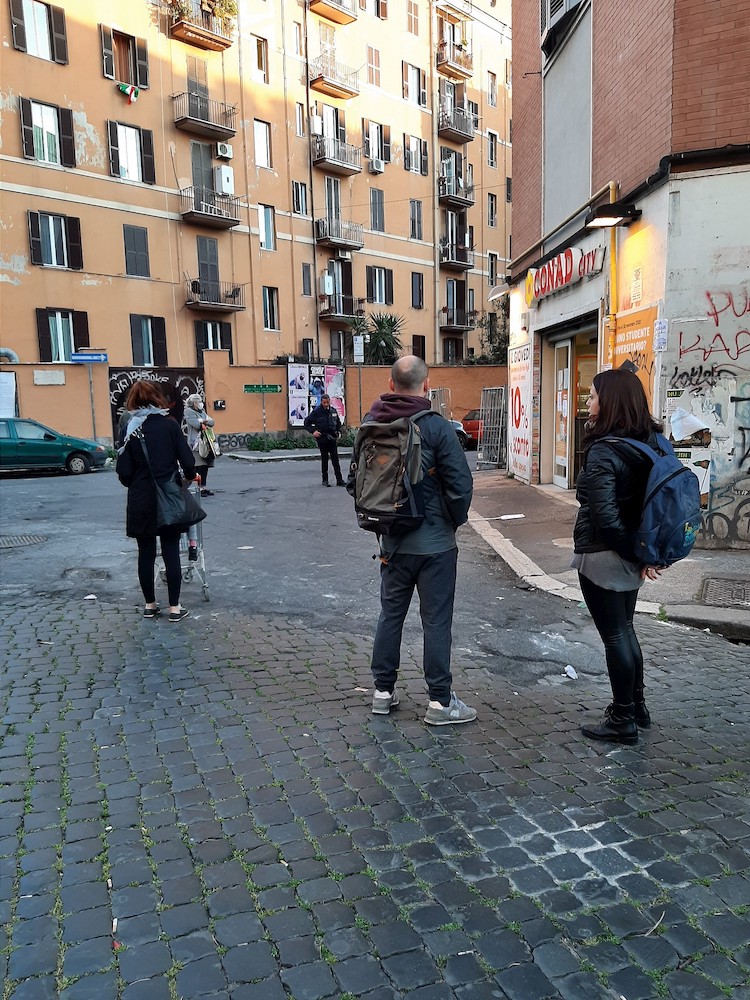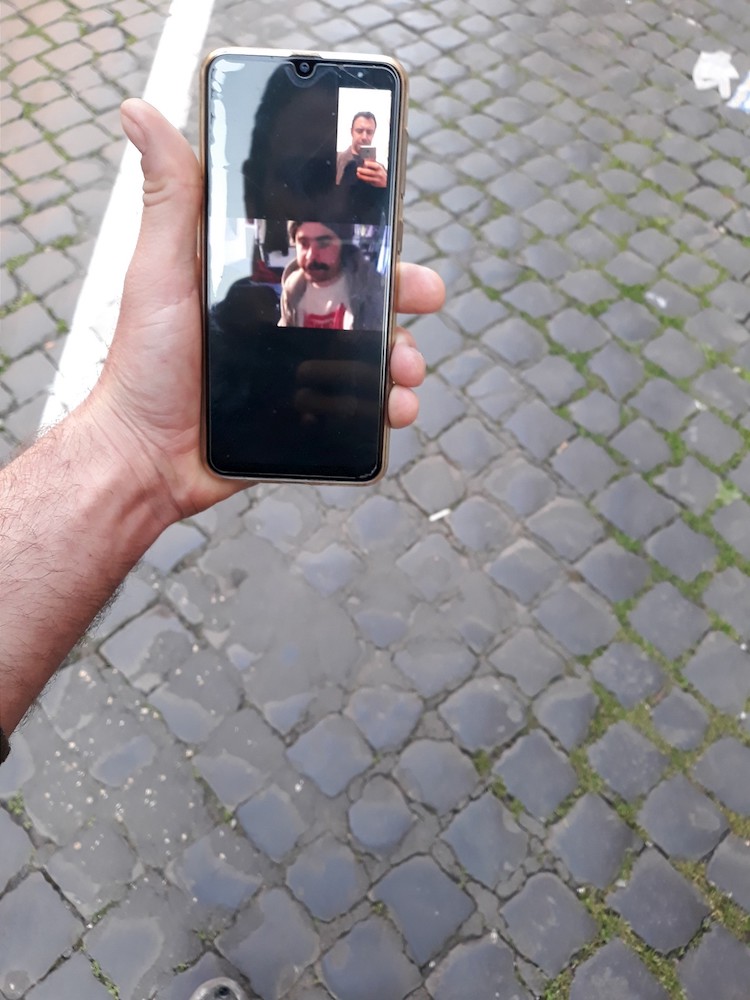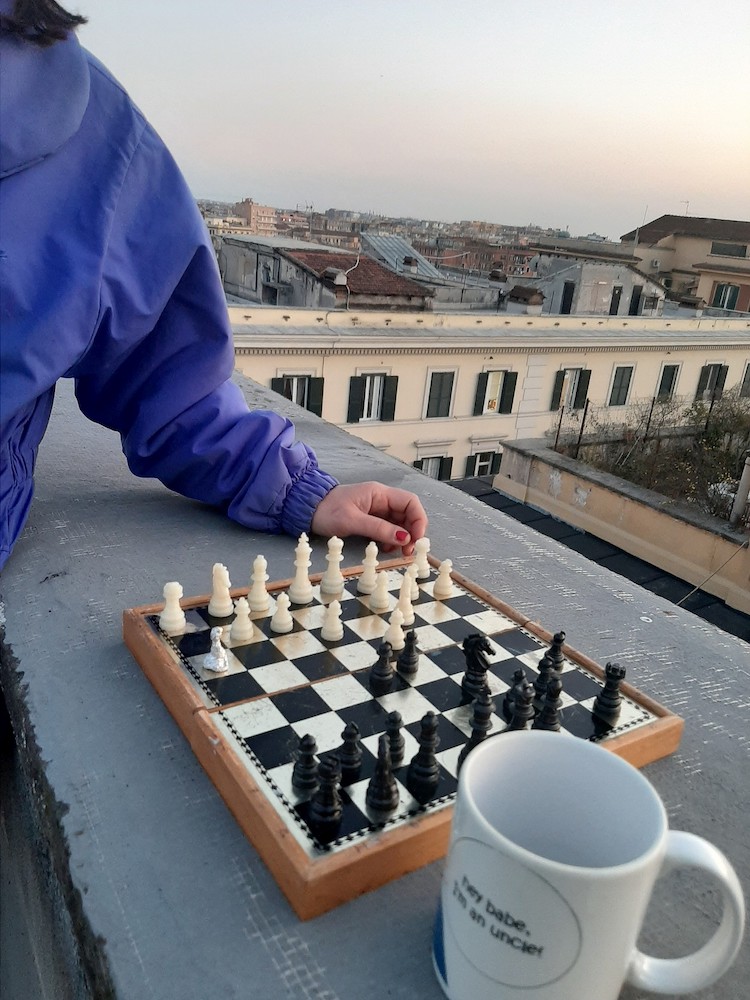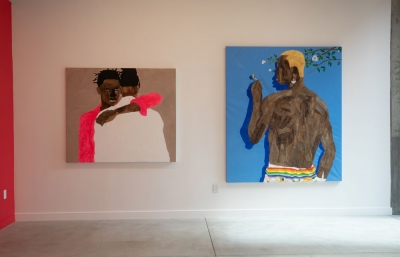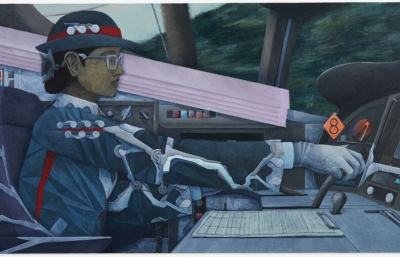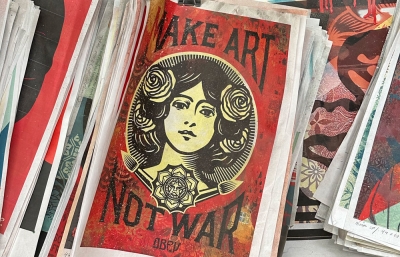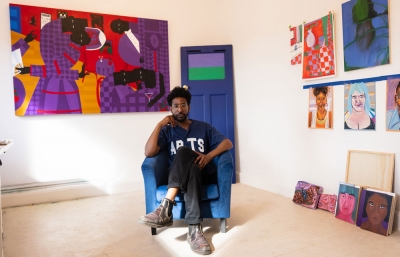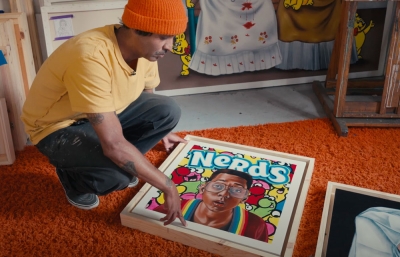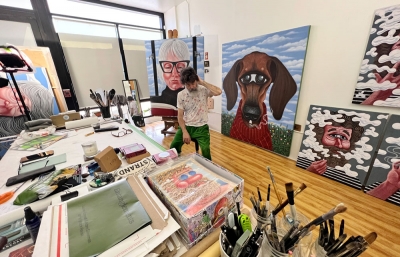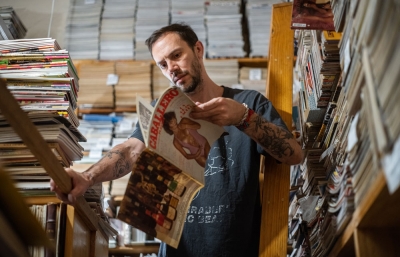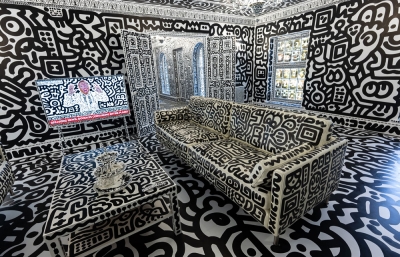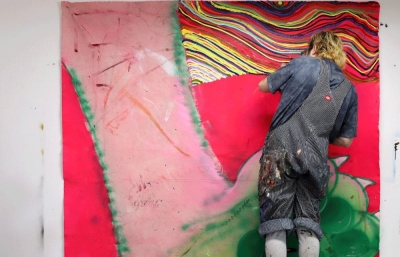"The sense of awareness began a bit later for me here in Rome," painter Luca Grimaldi writes from the Italian capital. "We were all reading about it on the news, but it personally became 'real' only on the 8th of March. Beforehand, I was taking part in shows and attending crowded openings. I hadn´t yet wrapped my head around the fact that I was putting other people in danger."
As Covid-19 seems to engulf the globe, these opening words from our latest "Art In Uncertain Times" series feel frightfully familiar. "It was already a front page on the news, but still something too far away to affect us here in Rome. It took a bit to become real for me," Grimaldi reflects about the way he and many others felt about the looming crisis that has now encroached cities and villages everywhere. One of the main goals of this new series is to share and help prepare as we and others navigate the days ahead. We’re gratified to share this artist’s perspective on coping and creating, during this kind of crisis, as he reports from Italy. 
"Since the lockdown, you have to fill out a form to leave the house, in case of a roadblock. You are allowed to go out only to buy medicines, food or for “demonstrated work requirements”. Although this consists of a self-certification, you are basically making yourself liable for anything you write on this form. Until today 80,000 people have been charged with a criminal offense. A number that is higher than the official number of infected people.
"I think that, for artists, filling out this form poses an interesting theoretical question. What do I write in this form? What will I say if I get stopped while I´m going to my studio? Will I engage in a conversation about the nature of Art with a police officer, in order to determine if Art is a profession? Because I would never call it a profession, but I want to avoid a criminal charge. At the moment I leave the house only to go to my studio, which is close to where I live. I walk through streets that usually would be packed with traffic jams and that now are so empty they resemble ancient photos of Rome.
"I am a studio-based artist so the pandemic didn´t drastically change my routine. We share this small hangar in San Lorenzo district in Rome, but we have been taking turns working in order to not risk the spreading of the virus. Usually, the studio is a place where we share ideas. Removing all social aspects from a studio-based art practice really strips the process down to the material and my own relationship to it. I´m making work knowing that for some time no one will see it. The social part of studio life is replaced by many video calls and WhatsApp conversations throughout the day. I always take many breaks during work; I usually play online chess or read.
"In these quarantine days, my Internet addiction grew considerably. I am trying to do my part by staying indoors as much as possible in order for this emergency to cool off. If anything, it´s great to be able to do the right thing by watching YouTube.
"I have been working for the past months exploring a wide range of materials, tapping into my own experience as a construction worker. I was going to further develop my research in March and April at 37 pk in Haarlem, The Netherlands, as well as in a couple of project spaces in Rome, but everything got postponed to a later date to be determined. Most artists I know are in this limbo state at the moment. 
"In this period I´m trying to understand if all of this is seeping into my working practice. Is any of this pandemic narrative entering the ideas behind my own painting? If yes, in what way, and should it or not? They are questions that perhaps reveal a certain pressure to address something as big as this pandemic. Talking about it with my studio mates Lulú Nuti and Alessandro Calizza on WhatsApp we recognized that this pressure has always been there, even before the pandemic: the requirement to never stop and to constantly publish online, to always have something to say about anything. We noticed how it can be easy to fall into this trap and that perhaps this is the chance to stop and think for a second.
"By blocking every activity that is not considered 'essential', the government indirectly puts into question what is to be considered essential. We noticed how, after two weeks of taking care exclusively of our “essential” needs, what we seem to miss more are these things that are not be considered essential: sociability, dialogue, Art."
Text compiled by Sasha Bogojev

